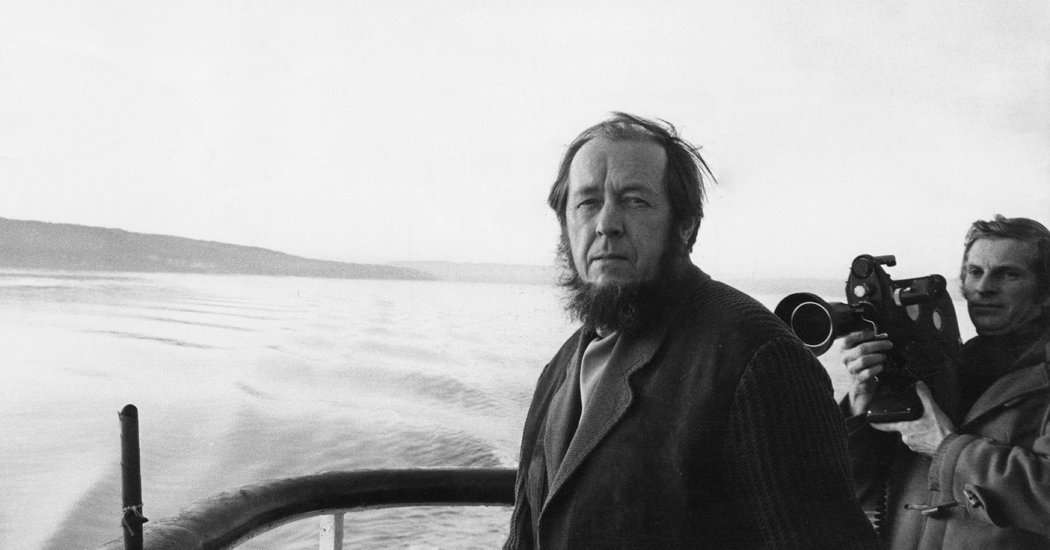By the end of the 1960s, the leading writers and activists came to be known as the Dissident Movement. Their goal was to bring about freedom of expression and peaceful political change in the Soviet Union, and they garnered a global audience of readers. Besides writers, their ranks included scientists, engineers, academics, lawyers, even rebellious workers; their unofficial leader was the Nobel Prize-winning physicist Andrei Sakharov.
Solzhenitsyn sympathized and cooperated with Sakharov and the other dissidents, but he didn’t always agree with them, and he continued to follow his own path. In 1973, still in the Soviet Union, he sent abroad his literary and polemical masterpiece, “The Gulag Archipelago.” The nonfiction account exposed the enormous crimes that had led to the wholesale incarceration and slaughter of millions of innocent victims, demonstrating that its dimensions were on a par with the Holocaust. Solzhenitsyn’s gesture amounted to a head-on challenge to the Soviet state, calling its very legitimacy into question and demanding revolutionary change.
In response, the Soviets stripped Solzhenitsyn of his citizenship and expelled him to the West; he landed in America, and spent most of the next 19 years in Vermont. He was able to collect the Nobel Prize he had been awarded in 1970; he also wrote four more historical novels in his grand series called “The Red Wheel,” centered on the Russian Revolution and its aftermath.
He continued to blast Soviet leaders for their corruption and offered reams of advice for the future, but it was not an altogether happy time for the writer. His broadsides carried less weight in the Soviet Union than when he had still lived there. Strident attacks on America and Western democracy soon alienated his liberal supporters in the West, while his fierce criticisms of former allies in his memoirs seriously damaged his reputation at home.
None of this diminished Solzhenitsyn’s desire to see the Soviet system brought down, and when the government of Mikhail Gorbachev collapsed in 1991 he enjoyed both the thrill of success and the satisfaction of being proved right in his predictions of disaster. Three years later, he returned to Russia and received a hero’s welcome. But he didn’t much like what he saw there.
President Boris Yeltsin’s government was chaotic, and Solzhenitsyn disapproved of what he saw as the new regime’s adulation of the West and its foolish desire to introduce a form of Western democracy. What he advocated was a strong leader, who maintained strict order in the country, encouraged more religion and state support for the Orthodox church, together with a revitalized patriotism and a return to traditional values.
He seemed to get his wish in 2000, when Mr. Yeltsin handed the presidency over to a man who shared Solzhenitsyn’s nationalist views and personified his ideal of a strong leader: Vladimir Putin. The new Russian leader made a show of welcoming Solzhenitsyn to his residence and seeking his advice, and in 2007 he bestowed a state award on the author for his humanitarian activities (Solzhenitsyn had refused similar awards from Mr. Gorbachev and Mr. Yeltsin).

BReximous on December 11st, 2018 at 22:19 UTC »
cough Rocky IV
verylittlefinger on December 11st, 2018 at 18:43 UTC »
As a former Soviet citizen who lived through perestroika - bull fucking shit. There are many theories about why USSR fell apart, and advancing Solzhenitsyn as one of them is the stupidest thing I have read on the Internet today.
And yes, I have read a lot of his books.
buz_the_baka on December 11st, 2018 at 16:58 UTC »
Find it hard to believe he did more than Gorbachev.